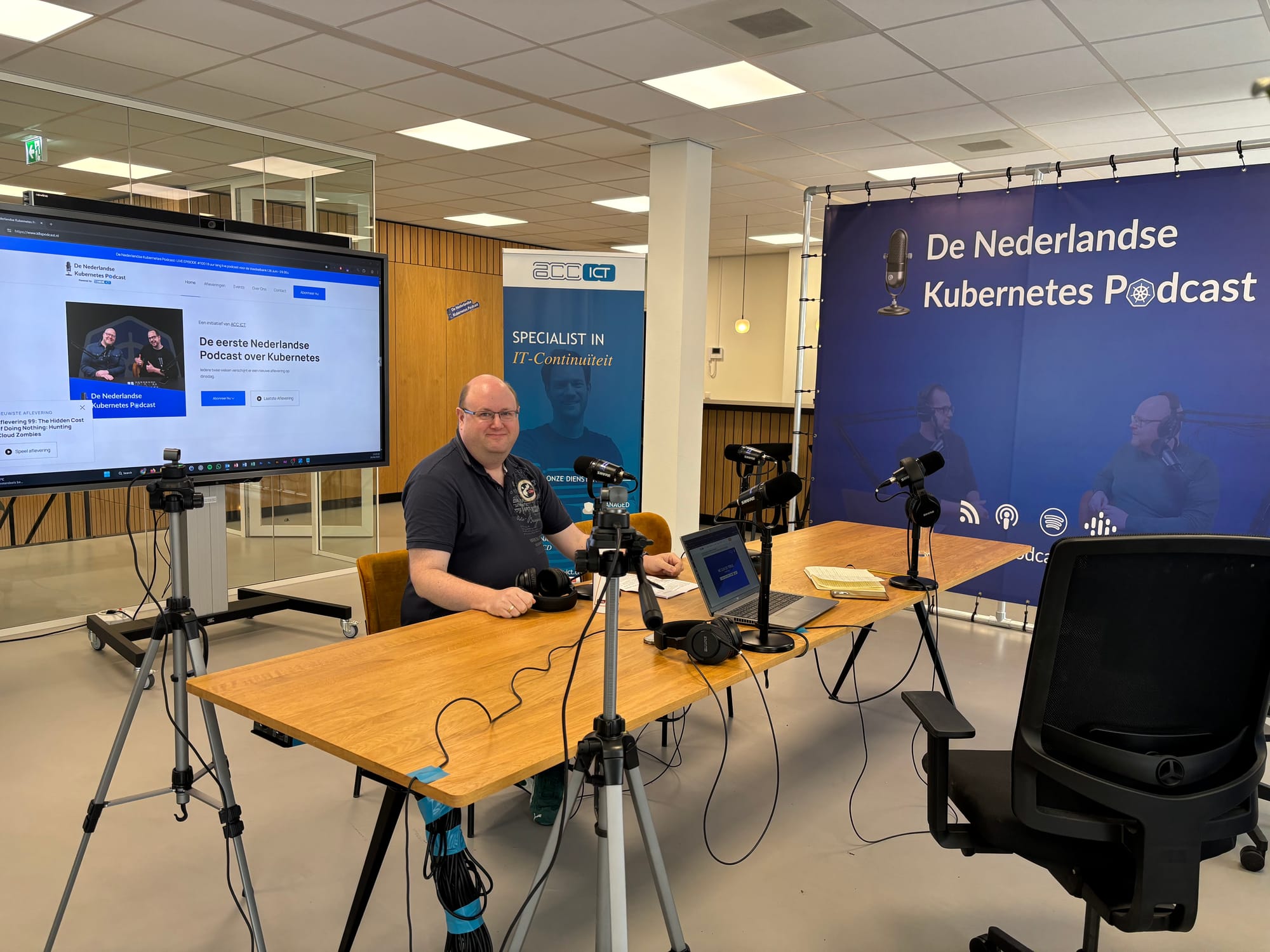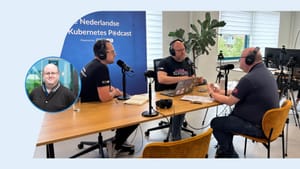At Funda, we love sharing our knowledge - both internally and externally. So when the Kubernetes Podcast invited us for their 100th episode, DevOps Engineer Floris van Unen gladly joined in. Even better: it was all for a good cause - supporting foodbank 'De Voedselbank'. In this blog post, Floris shares his experience.

As you can see on my LinkedIn page, my career has been mostly behind the scenes of popular websites - but leaving hardly any visible marks on them. While the businesses I have worked for have been mostly striving to make their sites more successful, my efforts have focused on getting the foundation - by that I mean the infrastructure, implementations, agreements, procedures, monitoring and documentation - very stable and well automated.
Since website visitors’ trust is hard to gain and easy to lose, the companies could not invest and grow unless the website worked like tap water - always available, with the kind of pressure (performance) we all take for granted.
Podcast debut
A few days ago, I had a baptism of fire as a podcast debutant, when the Dutch Kubernetes Podcast celebrated their 100th episode at their office, ACC ICT in Nieuwegein, and invited us to join their livestream (hello YouTube!) to talk about Kubernetes at Funda. For this special occasion, they hosted a live broadcast for eight hours straight, inviting several companies - including us - to participate. It was a unique setup: combining their own celebration with a good cause.
We were warmly welcomed at the premises and guided to the studio, where the two podcast hosts, Ronald Kers and Jan Stomphorst, were fasting for a good cause, which was ‘de Voedselbank’ - a charity that provides a variety of free food boxes to people in the Netherlands living below the poverty line. Funda kindly donated 100 boxes, like many participants and followers of the podcast did.
I saw a great opportunity to utilize my long history of working at Funda to not only give a sense of how popular our website is (Funda currently has 1.5 million unique visitors on a daily basis) but also to provide a taste of how it was technically hosted 15 years ago, as a comparison.

Developments within Funda
When it was my turn to talk on the podcast, we started the introductions by briefly flying through my career thus far, highlighting how Funda has been a recurring theme throughout. That led into what Funda does and who we do it for. One of the neat things I highlighted is our little feedback loop from search queries to real estate developers (more about that here).
We talked about our infrastructure and the massive traffic, and how 15 years ago the whole production environment of 100 cores could fit into two 19” racks in a data centre, as opposed to our current production footprint in Azure where we’ve grown to a usage of 900 cores scattered across the three availability zones. Also mentioned was our lift and shift migration to the public cloud, for which the selection was quite easy because of the Dutch presence with the best migration options from physical servers to virtual machines. I explained how the frontend of our website switched to Nuxt and how successful our Flutter app is.
See also: How to integrate Flutter into an existing native app: 2 options
Wide-ranging discussion
We focused further on how the SRE team within Funda puts effort into the maintainability of our home-made ecosystem by using Datadog for observability and also on the non-technical side by ranking changes by risk and deciding how to roll out with minimal disruption.
After covering how we cost-effectively handle our 40TB of daily traffic through common third parties, we zoomed in on our OpenSearch search-engine cluster, which is bombarded with queries at around 100 per second. We rely on consultants from all over the world to make it manageable and performing optimally by applying any and all best practices.
Then we discussed the phenomenon of Sovereign Clouds, and I shared a small reality check that Funda does not have any High Value Personal Information that could be related back to an identifiable person. We do have our own data warehouse where we watch for trends and opportunities, which Funda shares in its publications.
The future of Kubernetes
As time flew by, we landed on their signature final question about what the future holds for Kubernetes. I explained that I believe things will become increasingly abstract - as we already see in serverless environments - and that control will shift from humans to some form of traditional machine-learning rather than modern AI.
The goal is always the same: make microservices run as stably, availably and reliably as desired (over 99.99%) by applying known best practices and monitoring the metrics. Every company that already uses templating to create stacks, based on the flavour the developer wants to run, is already heading in this direction. As we all learn to adopt the Keep It Simple principle, this is a very positive movement.
What’s next?
The hosts and I acknowledged that there is still a lot behind the scenes that we can share, which we will do in a later podcast. I’m looking forward to the next one, either revisiting the Dutch Kubernetes cast or maybe creating our own. It was quite an event for me, but my preparations and the support of my colleagues helped a lot. And you are all invited to hear us talk online about one of the Netherlands' most popular websites!
🎧 Interested? The episode will go live at the end of July on the website of ‘De Nederlandse Kubernetes Podcast’. We’ll share the exact date once we know it - but you can already rewatch the livestream here; Funda’s part with Floris starts at 4h30.
See also: 7 tips to navigate the Kubernetes galaxy for CKAD certification
Do you have a burning question for Floris after reading his blog? Feel free to reach out to him via email.

